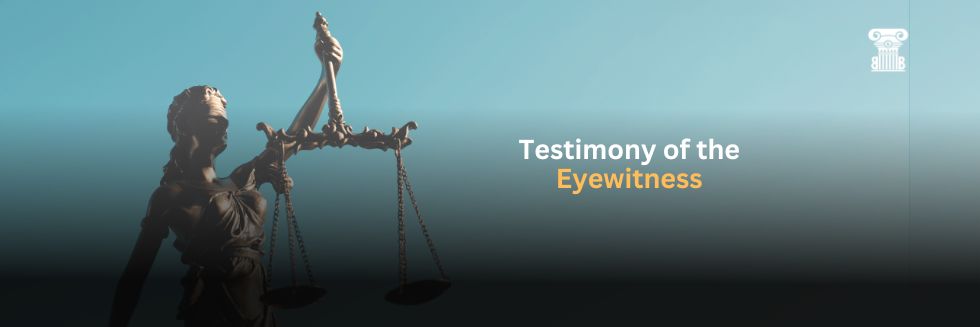Introduction
When we talk about insider trading, in simple words it can be defined as the act of buying or selling stocks or other securities by someone who has access to important, non-public information about a company. This information can give them an advantage in the market, allowing them to make profits. Whether insider trading is legal or illegal depends on the timing of the trades. For example, imagine a director of a company who knows in advance that the company will be merging with another company. This information is not yet known to the general public. Before the merger news becomes public, the director trades in the company’s securities to make a profit. This is an example of insider trading.
Insider trading can be both legal and illegal, depending on the circumstances and regulations in place. It is generally considered illegal when individuals use non-public information to trade securities and gain an unfair advantage over other investors. However, there are situations, where insider trading can be legal, such as when the trades are made in accordance with specific rules and disclosures, are properly made. Insider trading can be legal if the person with access to non-public information follows the proper channels and obtains approval from the appropriate authorities before conducting the trades. This means they must disclose the details of their trades and the material information they possess. However, if the trading occurs without going through the proper channels and without obtaining approval, it would be considered illegal. In such cases, the person is using their privileged information unfairly, giving them an unfair advantage over other investors who do not have access to that information. The information is referred to as price sensitive since it can influence the market price of company’s securities.
Insider Trading Regulations in India
Sachar Committee recommended the need to amend the Company’s Act 1956 as some employees of the company might be having key information which they would misuse and manipulate the stock prices. Insider trading is when someone trades securities based on non-public information, which is harmful to a fair market. Even a small amount of such trading can damage the market’s integrity. Insider trading has been a concern since the formation of the Bombay Stock Exchange in 1875. Initially, regulations against insider trading were limited and focused on disclosure requirements for company directors under the Companies Act, 1956.
- The Thomas Committee in 1947 recommended provisions to address insider trading, and these were incorporated into the Companies Act, 1956 as disclosure requirements. Section 307 and Section 308 of the Companies Act were modelled after similar provisions in the English Companies Act, 1948.
- In 1977, the Sachar Committee was formed to review the Companies Act, 1956 and the Monopolies and Restrictive Trade Practices Act, 1969.
- In 1979, a report highlighted that some insiders could make unfair profits in stock trading by using confidential information that the public doesn’t have access to. To address this issue, the report recommended changes to Section 307 and Section 308 of the Companies Act, 1956, to restrict insider trading by insiders and their relatives.
- In 1984, the Patel Committee, also known as the High-Powered Committee on Stock Exchange Reforms, was formed. In its 1986 report, the committee recommended amending the Securities Contracts (Regulation) Act, 1956 to prevent manipulations in stock exchanges.
- In 1989, the Abid Hussain Committee, also known as the Working Group on the Development of the Capital Market, proposed several recommendations. One of the key recommendations was to impose a ban on insider trading and establish penalties for such activities. The committee suggested that the Securities and Exchange Board of India (SEBI) should be trusted with the responsibility of framing the necessary law and given the authority to enforce it. In response to these recommendations, SEBI issued a consultative paper in 1991, which outlined provisions aimed at curbing insider trading.
- In 1992, the Securities and Exchange Board of India (SEBI) introduced regulations known as the Securities and Exchange Board of India (Prohibition of Insider Trading) Regulations, 1992. However, these regulations had certain limitations. They consisted of only 12 regulations, which were insufficient to effectively address the issue of insider trading. Additionally, the definition of ‘insider’ provided in the regulations was unclear and ambiguous. The regulations also did not specify penalties for breaching their provisions or grant the power to seize documents or detain suspected offenders.
Important shortcomings in the Securities and Exchange Board of India (SEBI) regulations regarding insider trading were exposed in the cases of Hindustan Lever Ltd. v. SEBI and Rakesh Agarwal v. SEBI. As a result, the Security and Exchange Board of India (Insider Trading) Regulations Act, 1992, was amended in 2002 to address these issues. The amended regulations, known as the SEBI ([Prohibition of] Insider Trading) Regulations, 1992, specifically prohibited fraudulent practices and held individuals involved in insider trading answerable for their actions. The provisions clearly state that insiders are prohibited from engaging in such malpractices. According to the SEBI (Prohibition of Insider Trading) Regulations, 1992, insiders are prohibited from trading in securities of a listed company when they have unpublished price-sensitive information. They are also prohibited from communicating, advising, or facilitating others to trade based on such information.
Insiders are expected to refrain from dealing in securities while in possession of unpublished price sensitive information. After ten years of the existence of the Securities and Exchange (Prohibition of Insider Trading) Regulations, 1992, the Securities and Exchange Board of India (SEBI) introduced improved regulations on January 15, 2015, known as the Securities and Exchange (Prohibition of Insider Trading) Regulations, 2015. These new regulations aimed to widely address the issue of insider trading. They expanded and clarified the definition of a connected person, widened the definition of insiders to include individuals without official positions in the company but who have contractual relationships and access to price-sensitive information. The 2015 regulations also introduced the concept of Trading Plans to ensure that insiders comply with the regulations regarding access to Unpublished Price Sensitive Information (UPSI).
Insider trading refers to the act of trading stocks or securities based on undisclosed, price-sensitive information that is not available to the general public. It involves individuals within a company using privileged information to gain an unfair advantage or prevent losses in their personal trading activities. In India, insider trading is specifically defined by the Securities Exchange Board of India (Prohibition of Insider Trading) Regulations, 1992, which considers it a breach of fiduciary duty by corporate officers towards shareholders. The regulations aim to ensure fair and transparent trading of securities in the market.
Regulatory Authority in India
SEBI (Security and exchange board of India) regulates Insider Trading in India. Under the SEBI Act of 1992, Sebi has been given the authority to frame insider trading regulations. SEBI has framed various restrictions on insider trading transactions. The Listed companies should preserve the Price sensitive information. A trading window has been for the insiders so that they can trade and report their transactions in securities timely to the stock exchanges and the compliance officer. The disclosure that the Listed companies make has to be displayed by the respective stock exchange on the official websites instantly. To prevent Insider trading, the regulations were amended by Sebi in February 2002 where it mandated policy on disclosure and internal procedure. SEBI Regulations prohibit an insider from dealing in securities of a firm which is listed on the stock exchange when the person has ownership of Unpublished price sensitive information. Moreover, the Person is prohibited from recommending or providing any other individual UPSI while he is having ownership of UPSI and should not trade in securities. The unpublished price sensitive information is information related to mergers, acquisitions, financial results, changes in capital structure, dividends, etc. Such information is directly or indirectly related to a concern of business, if such information is published it would ultimately lead to the prices of the securities of the company being affected. There have been cases where the listed companies gave monthly disclosure of certain price sensitive information like production/sales to the industry associations but failed to provide information to the stock exchange. So, SEBI has made an obligation for the Listed companies to disclose such price sensitive information first to the Stock exchanges.
Scope and Applicability Of SEBI Regulations
According to Indian law, an ‘insider’ is defined in Regulation 2(e) of the Securities and Exchange (Prohibition of Insider Trading) Regulations. There are two clauses in this definition. The first clause includes individuals who are connected with the company or deemed to be connected and are reasonably expected to have access to unpublished price sensitive information. The second clause includes individuals who have received or had access to such information. To fall under the first clause, one must be a ‘connected person’ as defined in Regulation 2(c) or a ‘person deemed to be a connected person’ as defined in Regulation 2(h), and also expected to have access to unpublished price sensitive information. Regulation 2(c) defines a ‘connected person’ as a director or someone deemed to be a director, or any person in a position of an officer or employee of the company, or someone holding a position involving a professional or business relationship with the company that gives them access to unpublished price sensitive information.
The definition of a person “deemed to be a connected person” under the regulations has been broadly expanded to include various individuals and entities. Intermediaries, such as investment companies, trustee companies, asset management companies, and their employees or directors, as well as officials of stock exchanges, clearing houses, or corporations, are now covered. Additionally, specific intermediaries like merchant bankers, share transfer agents, registrars to an issue, debenture trustees, brokers, portfolio managers, investment advisors, sub-brokers, and employees of investment companies are included. Board members and employees of public financial institutions and officials or employees of self-regulatory organizations recognized by regulatory bodies are also considered connected persons. Relatives of connected persons and bankers of the company are deemed to be connected persons. The definition is further expanded to include concerns, firms, trusts, Hindu undivided families, companies, or associations of persons where connected persons, their relatives, or the aforementioned categories of individuals have a holding or interest of more than 10 percent.
Which Actions Constitute The Offence of Insider Trading?
The offence of insider trading in India is defined by the SEBI Regulations. Chapter II of these regulations, specifically Regulations 3, 3A, 3B, and 4 outlines the actions that constitute insider trading. Regulation 4 states that any insider who deals in securities in violation of Regulations 3 or 3A shall be considered guilty of insider trading. Regulation 3 prohibits certain actions by insiders, including dealing in securities of a listed company while in possession of unpublished price sensitive information or communicating such information to others who are also in possession of it. Regulation 3A extends the prohibition to companies dealing in securities of other companies or their associates while in possession of unpublished price sensitive information. However, Regulation 3B provides defense for companies facing proceedings based on Regulation 3A. The company can argue that the decision to enter into the transaction was made by individuals other than the officer or employee in possession of the information, that the company had systems in place to prevent access to such information by the person conducting the transaction, that the company had arrangements to prevent communication of the information and advice regarding the transaction, or that the information was not communicated and no such advice was given. These regulations define the actions that would constitute the offence of insider trading in India.
Effects Of Insider Trading
A person who indulges in the act of Insider Trading constitutes a breach of fiduciary duty because of the breach of trust and confidence. The person possessing insider information obtains an unfair advantage as it benefits their self-interest rather than the company and if furthers harms the market reputation as well discourages investment. The person having the insider information and when such a person deals in the transaction which results in the selling of security while possessing the confidential information ultimately has an impact on the value of such securities. Further analysis reveals that the person possessing the vital secret information shows that the person has a relationship with the firm that provides the vital information to that person. The person could work as an employee, director, or professional advisor. This is not good for the company as well as for the public. Directors or employees working in the organization hold a duty towards the company, so they are required not to use insider knowledge for their personal motives. Such procedure should be continuously monitored so that there arises no cases where investor trust is broken and thus it does not lead to jeopardise the market’s integrity.
Landmark Cases on Insider Training
The Hindustan Lever Ltd. case was a significant insider trading case in India. Hindustan Lever Ltd. (HLL) was accused of engaging in insider trading when it purchased 8 lakh shares of Brooke Bond Lipton India Ltd (BBLIL) from Unit Trust of India (UTI) based on unpublished price sensitive information about an impending merger between HLL and BBLIL. SEBI, the regulatory authority, investigated the case.
However, the Securities Appellate Tribunal (SAT) overturned SEBI’s order, stating that the proposed merger was already known to the public. SAT cited press reports that indicated prior market knowledge of the merger. This case highlighted a loophole in the law, as it suggested that information known to the media could not be considered unpublished price sensitive information.
As a result, an amendment was introduced in the SEBI Regulations in 2002 to address this issue. The amendment modified Regulation 2(k) to specify that speculative reports in print or electronic media would not be considered “published” information. This amendment aimed to close the loophole and ensure that such information is still considered sensitive and subject to insider trading regulations.
The Rakesh Agrawal case has played a significant role in shaping insider trading laws in India. It involves Mr. Rakesh Agrawal, who was the Managing Director of ABS Industries Ltd. at the time. He was accused of engaging in insider trading by using price-sensitive information about the merger of ABS Industries Ltd. with Bayer AG.
After careful examination of the issues and evidence, the Securities Appellate Tribunal (SAT) determined that Agrawal’s intention in acquiring the shares was to facilitate Bayer’s entry into the company, rather than for personal gain. SAT concluded that although Agrawal did make a profit by selling the shares at a higher price during the public offer, this gain was incidental and not intended to deceive. As a result, SAT ruled that Agrawal was not guilty of insider trading.
SEBI, the regulatory authority, appealed SAT’s decision to the Supreme Court. However, the matter was resolved through a consent order, in which Mr. Rakesh Agrawal agreed to pay Rs. 48,00,000 as part of a settlement. Additionally, regarding the prosecution initiated by SEBI in 2001, the offense was compounded, and the accused paid Rs. 4,90,000 to SEBI.
This case highlights the importance of considering the intentions and circumstances of individuals involved in insider trading cases, as well as the potential for settlements and compounding of offenses.
The Samir Arora case is another significant case in the development of insider trading laws in India. In 2003, Samir C. Arora, who was the fund manager of Alliance Capital Mutual Fund, was accused of engaging in insider trading. It was alleged that he sold all the shares of Digital Global Soft (DGL) that he held based on unpublished price-sensitive information about the merger ratio of DGL with HPI (Hewlett Packard).
The accusation stated that Arora had first increased the price of the DGL shares through certain statements made to the Business Standard on April 30, 2003, which were published on May 5, 2003. He then sold all the shares managed by him over the next four trading days, thereby avoiding a loss of about Rs. 23 crores for the funds under his management. SEBI, the regulatory authority, found him to be prima facie guilty of insider trading and imposed a five-year ban on his access to the securities market.
However, Arora appealed to the Securities Appellate Tribunal (SAT), which carefully examined the arguments presented by both parties. SAT concluded that the price-sensitive information that Arora was alleged to have accessed was not accurate because the merger had not been officially announced on May 12, 2003. SAT stated that information that later turns out to be false or uncertain cannot be considered as information. Therefore, SAT concluded that the sale of securities before the board meeting could be seen as based on Arora’s analysis and assessment of publicly available information.
The case highlights the importance of accurate and confirmed information in determining insider trading offenses. In this case, since the information was ultimately found to be false or uncertain, it was not considered as inside information, and Arora’s actions were deemed to be based on his own assessment of publicly available data.
The Samir Arora Case
The Samir Arora Case is considered one of the most important cases which lead to the evolution of the Insider Trading Norms. In 2003, Samir Arora who was the fund manager of Alliance Capital mutual fund had allegations that he was involved in insider trading transactions when he disposed of the entire scrip from Digital Global Soft which he held based on the alleged unpublished price sensitive information consisting of the merger ratio of DGL and HPI (Hewlett Packard. Samir Arora was accused of engaging in insider trading based on inside information. It was alleged that he manipulated the price of a particular stock by making statements to the Business Standard on April 30, 2003, which were published on May 5, 2003. As a result, the stock’s price rose from Rs. 537.55 on May 2, 2003, to Rs. 597.25 on May 7, 2003.Following this increase, Samir Arora sold all the holdings of the funds he managed over the next four trading days. This action enabled him to avoid a loss of approximately Rs. 23 crores for the funds he managed. The Securities and
Exchange Board of India (SEBI) conducted an investigation and found him to be prima facie guilty of insider trading.
Consequently, SEBI issued orders debarring Samir Arora from accessing the securities market for a period of five years. This penalty was imposed as a result of his involvement in insider trading activities.
In an appeal to the SAT (Securities Appellate Tribunal), the analysis of the arguments presented by both parties led to the conclusion that the price-sensitive information accessed by Samir Arora was not accurate. This was because the merger that Samir Arora was alleged to have accessed information about was not actually announced on May 12, 2003. The SAT determined that information that is ultimately proven false or uncertain cannot be considered as valid information. Therefore, the SAT concluded that the sale of securities made prior to the board meeting could only be attributed to Samir Arora’s own analysis and assessment of publicly available information.
India Bulls case
In the India Bulls case, the executive directors of India Bulls were accused of making 87 Lakh by way of illegal means by way of trading in India Bulls as they had access to secret information that was not published. The unpublished secret information was related to the sale of land and property secretly by a subsidiary called India Bulls Venture Limited. The accused executive director was a member of the management committee of India Bulls, making her an insider. Her husband was also considered an insider. These unlawful gains were made between 2017 and 2019.
The Securities and Exchange Board of India (SEBI), the regulatory authority, has ordered strict criminal action to be taken against India Bulls Venture Limited (IVF). Both the executive director and her husband are required to surrender Rs. 87.4 lakhs jointly and severally. SEBI has also prohibited any debts from being incurred without its prior permission.
Loopholes
Insider trading claims in India often lack concrete evidence, making it challenging to identify and prove the crime. While the regulatory system is relatively strong, the number of successful cases remains low. The Securities and Exchange Board of India (SEBI) faces difficulties due to a lack of technical expertise, which hampers efficient investigations. Additionally, Indian law does not apply to cases of insider trading committed by foreign nationals, and there are no provisions for penalties or investigations in such instances. The extraterritorial applicability of insider trading regulations is not addressed in the relevant Acts.
Conclusion
Since 1992, there have been significant legislative developments in India to control insider trading. Insider trading is viewed as a serious offence, and authorities occasionally revise the laws to include stricter penalties. The Securities and Exchange Board of India (SEBI) has achieved some success in accusing insider traders. The Board of Directors of companies has a crucial role in protecting unpublished price-sensitive information and holding insiders accountable for the unauthorized distribution of such information. This responsibility is necessary to eliminate insider trading and protect investors’ interests in the market.
While it is challenging to fully regulate insider behaviour, senior management, including directors and officers, should establish strong ethical standards within their organizations to protect the company’s reputation. Insider Trading is unethical behaviour that should be removed so that fairness is maintained and the market is regulated effectively This requires voluntary adoption and commitment. Additionally, the Indian government should focus on developing procedures or technologies to expedite the resolution of pending insider trading cases. To ensure that the integrity of the market and the trust of the investors is maintained SEBI has been obligated to use legal methods for detecting any insider trading activity. But there still is a requirement for a strong mechanism for the purpose of investigation and prosecution to deal with the aspects of insider trading activities.
This article is written and submitted by Vidushi Joshi during her course of internship at B&B Associates LLP. Vidushi is a second year LL.B. student at UPES Dehradun.






